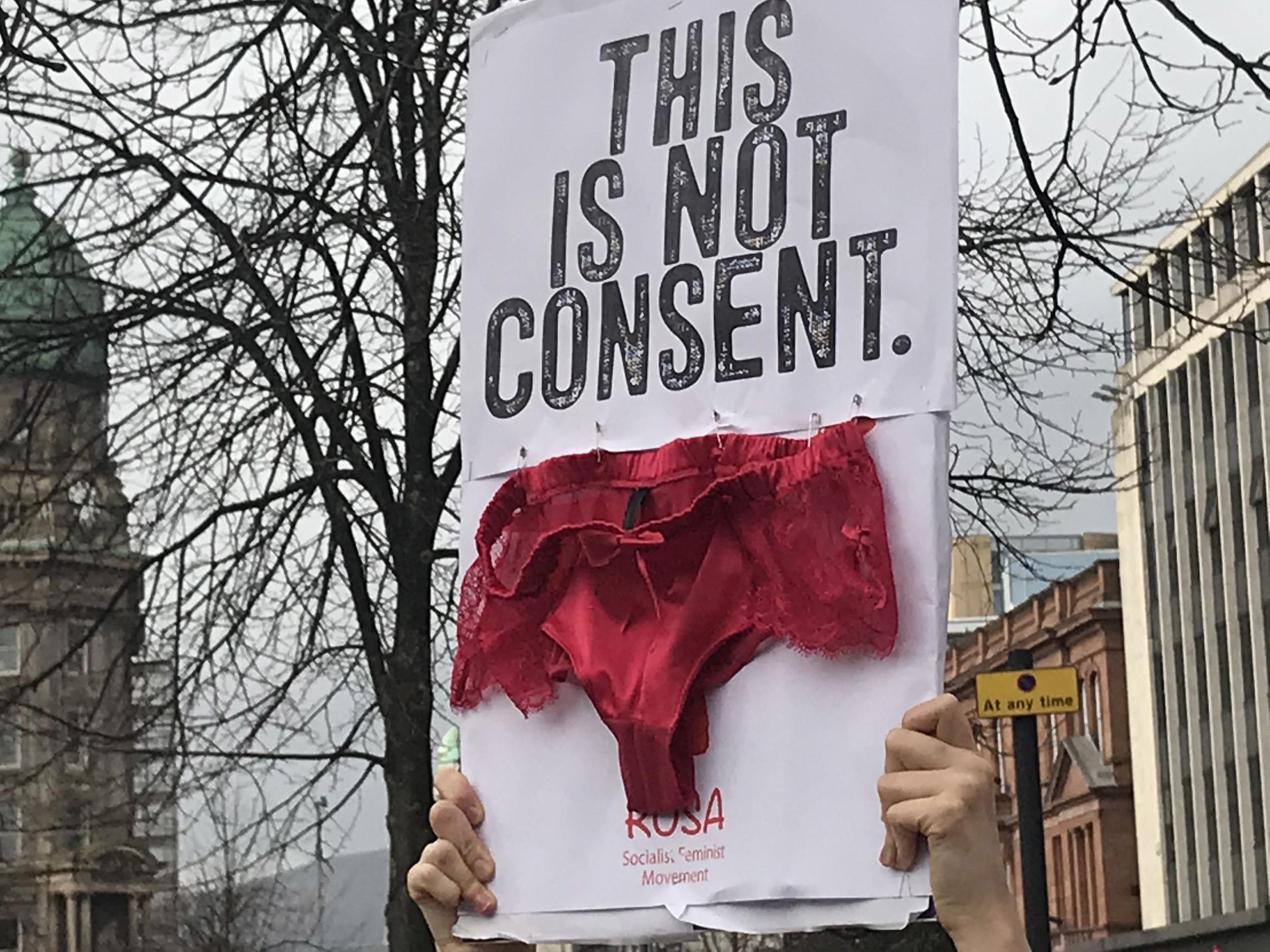Rape victims to give video statements for first time as Scotland overhauls justice system
‘We hope this initiative signals a step-change in truly addressing this most heinous of crimes,’ says campaigner

Victims of sex crimes will now be able to give their police statements on video in a historic overhaul of Scotland’s justice system.
The country’s most senior officers have launched a pilot scheme under which rape and sexual assault survivors can tell their story straight to camera and potentially avoid having to appear in court.
Chief Constable of Police Scotland Iain Livingstone and his senior leadership board think the project will produce better evidence than antiquated longhand note-taking by detectives.
The pilot, which will be pioneered in Edinburgh and Inverness, forms one part of a broader Scottish drive to make the justice system, including police investigation, less traumatic for sexual violence survivors.
Katie Russell, spokesperson for Rape Crisis England and Wales, noted the scheme has already been in place in England for around five years and is standard practice for sex crime victims. She welcomed Scotland’s decision to adopt the initiative.
“It is a great idea and it works well in England and Wales,” she said. “It is tried and tested. It is far preferable to those long stints of time where the police are laboriously writing out the statement by hand.”
But Ms Russell voiced her concerns video cross-examination had yet to be introduced for survivors of sex crimes. She said it was supposed to be piloted in some parts of England a couple of years ago but there has been a “massive delay”.
The campaigner added: “It would have brought in pre-recorded cross-examination to be used in court rather victims having to attend court. This would have reduced the trauma of appearing in court.”
Ms Russell said there are strict rules about what victims can be asked during cross-examinations, but explained that these regulations were often broken – with “rape myths”, “victim-blaming” and “questioning about a victim’s sexual history” emerging in the process.
“Even if a judge says disregard that, it can still influence a jury,” she added. “But if we had a system with pre-recorded video cross-examinations, it could simply be edited out.”
Vivienne Hayes, chief executive of the Women’s Resource Centre, the leading national umbrella organisation for the women’s sector in the UK, applauded Scotland’s decision to allow sex crime victims to give police statements on video.
She said: “Anything that takes into account the needs of predominantly women going through the criminal justice system in rape cases is to be welcomed.
“However the current abysmal and systemic neglect of those reporting rape requires a root and branch review at the highest level with the voices of victims and survivors at the centre and the expert women’s organisations working in this field valued and listened to.
“We hope this initiative signals a step-change in truly addressing this most heinous of crimes. It will also go some way to giving victims and survivors the message that the criminal justice system has thought about their needs and the horrific crime they wish to report which is, short of murder, the most horrendous crime known to society.”
Child crime victims already give pre-recorded witness statements or appear by video link in courts in Scotland.
Campaigners have been gradually overhauling the way rape complainers are treated during cross-examination after Lindsay Armstrong took her own life at the age of 17 two weeks after giving evidence against the 15-year-old boy who raped her.
The Scottish teenage rape victim gave evidence in the trial – at one stage she was told to hold up the g-string underwear she had been wearing when she was attacked.
The Crown Prosecution Service, the principal public agency for conducting criminal prosecutions in England and Wales, is facing fierce criticism for the alarming drop in prosecutions for rape – with campaigners saying prosecutors are failing rape victims “at every stage” after recent figures revealed the time taken to charge suspects has more than doubled in the past seven years.
Government figures show there was a 23 per cent drop in the number of rape cases taken on by the CPS in the 12 months to 2017-18, despite a 16 per cent increase in police-recorded rape over the same period.
A Ministry of Justice spokesperson said: “Pre-recording cross-examination can spare victims and witnesses the trauma of facing the accused in court, enabling them to give their best evidence, but it is vital we test the technology fully before a wider roll-out."
They explained that victims of all crimes, including those of a sexual nature, in Leeds, Liverpool and Kingston upon Thames have been able to give pre-recorded video cross examination evidence since June of this year. It has been available to child victims or victims with disabilities in those areas since 2013.
